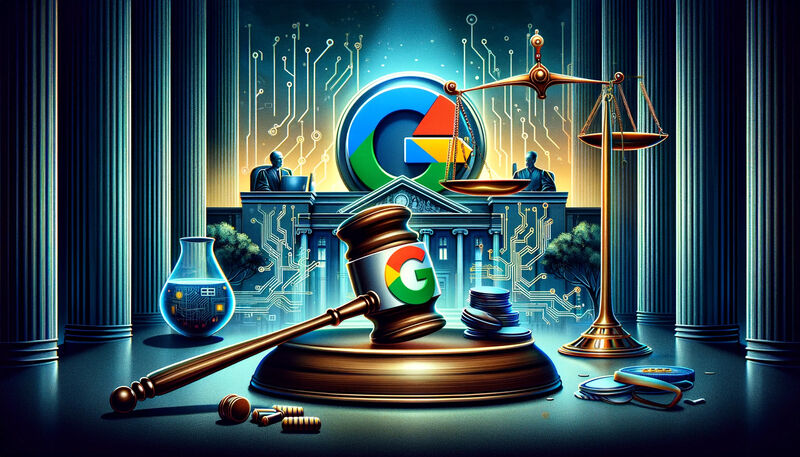Silicon Valley Awaits Outcome as Google’s Monopoly Trial Concludes

In the quiet corridors of Silicon Valley, a palpable tension lingers as the tech community braces for a pivotal decision in the monumental antitrust trial against Google. The culmination of this extensive legal battle has significant implications not just for Google, but for the entire tech landscape.
The High Stakes for Google and Silicon Valley
A decade into aggressive expansions and dominance, Google finds itself grappling with allegations of monopolizing the online search and advertising markets. The tech giant, whose operational blueprint has long been etched into the DNA of Silicon Valley’s ethos, is now defending its competitive ethos in a federal court.
As the trial inches toward its resolution, U.S. District Judge Amit Mehta is tasked with deciding whether Google’s dominance constitutes an illegal monopoly. The outcomes are profound—potentially reshaping Google’s business structure and its $237.8 billion revenue model dramatically.
Echoes of a Larger Battle
This trial is but a crescendo in a series of antitrust challenges echoing across Silicon Valley. Giants like Apple, Amazon, and Meta face their regulatory scrutineers, each embroiled in similar legal tussles over market dominance and competitive practices. The ripple effects of Judge Mehta’s decision will undoubtedly influence these cases, setting precedents that could alter the competitive landscape of the tech industry.
The Arguments and Antitrust Implications
In their final pitches, government prosecutors from 14 states and the federal body argued that Google has stifled competition by abusing its market dominance in search and advertising. They claim Google engaged in exclusive contracts and anti-competitive practices that cemented its monopoly at the expense of rivals and innovation.
Google’s defense pivoted on the narrative of meritocracy—asserting that their dominance is a byproduct of superior product offerings and innovation. John Schmidtlein, representing Google, contended, “Google is winning because it’s better," a sentiment that underpins the company’s defense strategy.
Potential Consequences and Industry Impact
A verdict against Google could dismantle some of its integral agreements, especially those involving billions in revenue-sharing with companies like Apple, and reshape its interactions with phone manufacturers and other tech entities.
Conversely, a government victory could energize competitors like Microsoft’s Bing or the privacy-focused DuckDuckGo, not to mention newcomers waiting on the fringes. It could recalibrate the default search engine dynamics on millions of devices, potentially decentralizing the market Google has led for over a decade.
Looking Ahead: The Broader Tech Ecosystem
Beyond the immediate ramifications for Google, the trial's outcome could precipitate a new era of regulatory scrutiny for Silicon Valley. Companies might need to navigate a redefined field of operational and competitive strategies, particularly if the judgment favors a stricter interpretation of antitrust laws.
As the industry stands on this precipice, the broader implications for innovation, privacy, and market dynamics in the digital age remain subjects of fervent discussion. Silicon Valley’s ethos of ‘move fast and break things’ might transform into a more cautious approach towards expansion and competition.
In Conclusion
As Judge Mehta deliberates over the coming weeks—or months—the tech world waits with bated breath. The decision will not only dictate Google’s future but could also set the stage for how modern tech companies operate within the bounds of U.S. antitrust laws. Whatever the outcome, one thing is clear: the landscape of Silicon Valley and its inhabitants is on the verge of a significant transformation.

